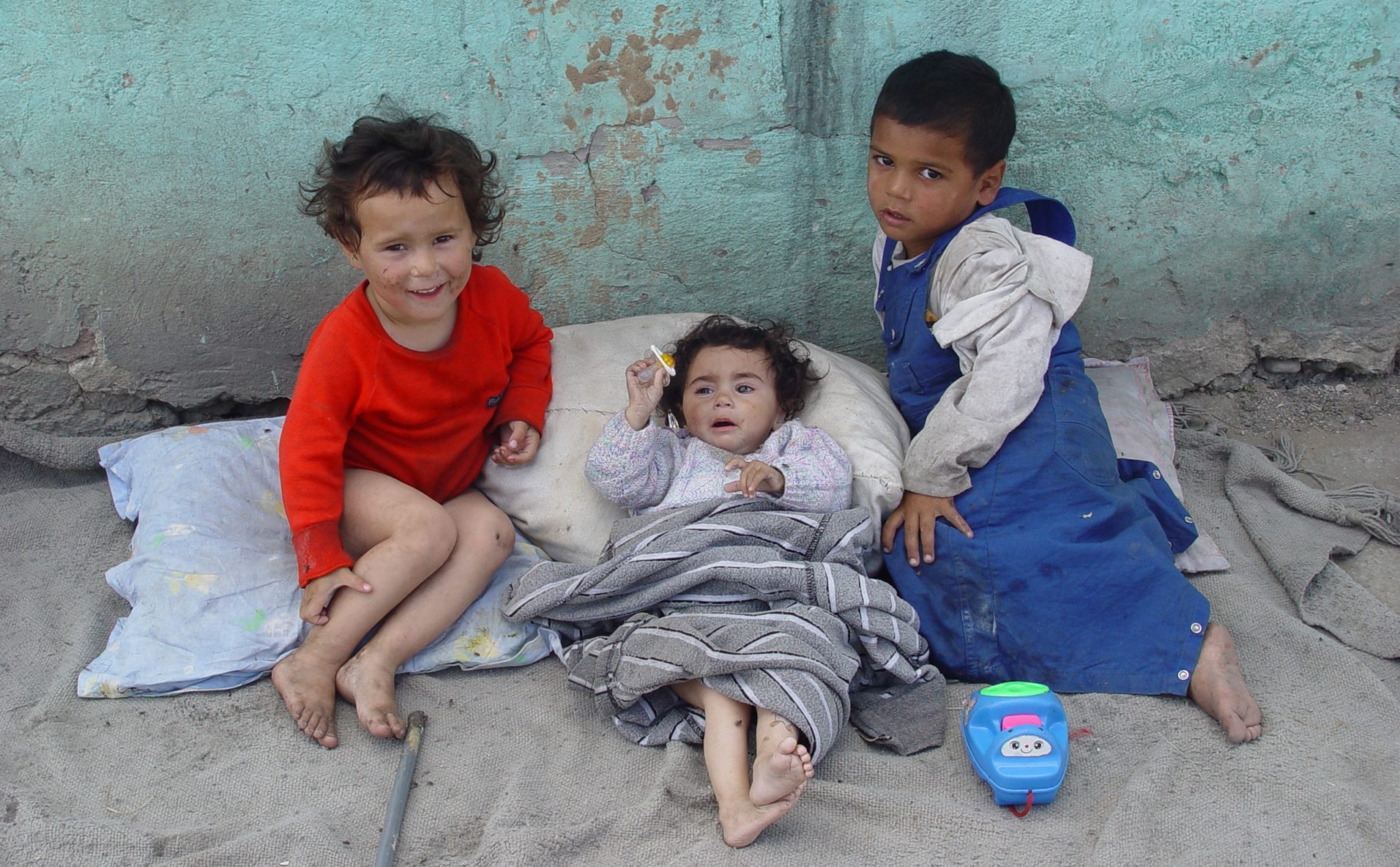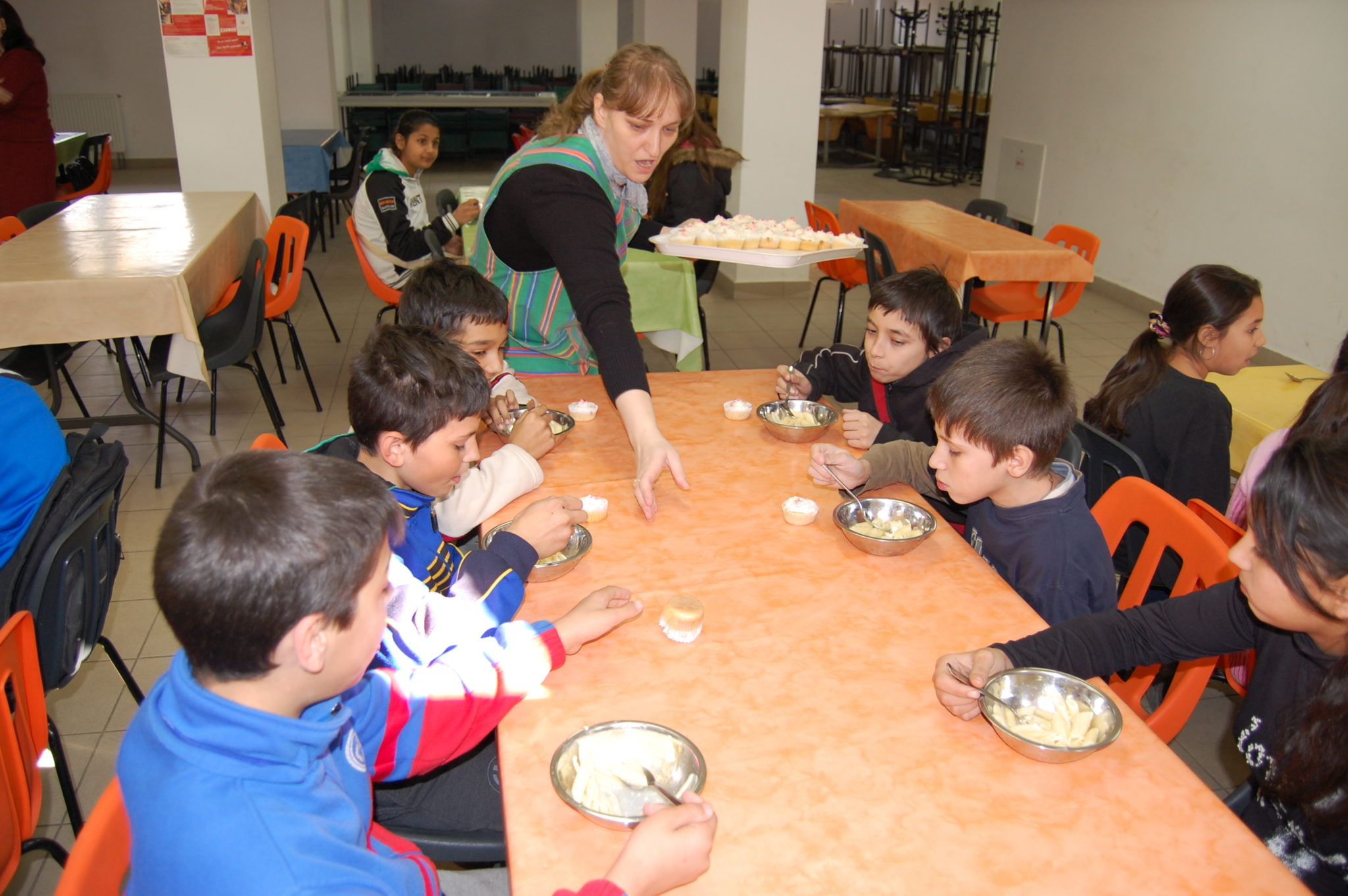By Jeff Brumley
Project Ruth’s Mihai Ciopasiu is all too glad to talk about the success the organization has enjoyed the past two decades serving the poorest and most shunned children in Romania.
The nonprofit began as a day center with barely 20 Gypsy children in a church basement in one of Bucharest’s worst slums. By May 2012, when it celebrated its 20th anniversary, Project Ruth had become an accredited school and counseling center with around 200 students.
Its services have expanded to include medical and hygiene programs, humanitarian aid, computer training and athletics in a two-building campus with 200 students.
 Nurturing that growth, Ciopasiu added, has been a network of Cooperative Baptist Fellowship churches and individuals channeling life-giving supplies, money, volunteers and prayer to Project Ruth since the very beginning.
Nurturing that growth, Ciopasiu added, has been a network of Cooperative Baptist Fellowship churches and individuals channeling life-giving supplies, money, volunteers and prayer to Project Ruth since the very beginning.
“What we have been witnessing is a miracle,” said Ciopasiu, the executive director since 2009.
Looking ahead
But the focus must be on the next 20 years, he said, if the organization is to start addressing the systemic issues that make Project Ruth necessary. Many of his American supporters agree.
“We would love to see a more comprehensive outreach in the community,” said Pat Anderson , CBF interim executive coordinator and a Project Ruth supporter since before its founding in 1992.
“I remember when the first group of Gypsy kids was brought in,” Anderson said, explaining he had befriended its founder, Baptist pastor Oti Bunaciu, during previous mission trips to Romania. The Gypsies, who are also known as the Roma, are among the poorest and most despised in Romania. Their plight is heart-breaking and evokes an impulse to help among almost all who see what Project Ruth is doing, he added.
‘Truly unique’
It’s why CBF will continue its support for the organization, Anderson said.
“Anyone that’s been touched by it comes away feeling that this is something truly unique and significant,” he said.
That certainly describes Ellen Sechrest, the minster of spiritual formation and missions at Boulevard Baptist Church in Anderson, SC. Sechrest first visited Project Ruth in 1997 with a group of church women. During the visit they were told of the need for a sponsorship program to defray the costs of educating and feeding the Gypsy children.
“So we created one,” Sechrest said.
Now, she oversees a program that connects the school with American donors who can have their $30-a-month contributions automatically withdrawn from their bank accounts.
‘The land of nothingness’
Joining sponsors in her church are individuals and group contributors in Missouri, Tennessee, North Carolina, Virginia, Florida and Georgia, she said.
 Plus there are the regular mission trips from Boulevard Baptist that have sent more than 100 church members, including 50 teens, to work at Project Ruth over the years.
Plus there are the regular mission trips from Boulevard Baptist that have sent more than 100 church members, including 50 teens, to work at Project Ruth over the years.
The draw, she said, is seeing “these children in the land of nothingness and knowing that education is the way out.”
Project Ruth’s real commodity is hope, said Wesley Craig.
Currently, Craig is the minister of missions and community ministries at Baptist Temple Church in San Antonio. But he and his wife, Susan, worked with Project Ruth as CBF field personnel from 2006 to 2009.
The group’s mere existence sends a powerful message to the rest of Romania, and even Europe, that Gypsys are not the untouchables they are depicted to be, Craig said.
‘What we dream’
But the consistent effort by Romanian Baptists, the Ruth Project and CBF volunteers is often the only message that runs counter to those beliefs, Craig said. “You don’t realize how much a miracle that is. There is hope for these people.”
To continue sending that message, Ciopasiu said, Project Ruth will expand its ongoing counseling program to offer marriage counseling and group therapy for moms. It will also work to oppose human trafficking and, next year, offer a summer camp program to get kids out of the city – some of them for the first time in their lives, Ciopasiu said.
Altogether, the goal is to erode the social factors – divorce, alcoholism, poverty and low literacy rates – that contribute to the Roma’s misery.
“This is what we dream,” Ciopasiu said.
